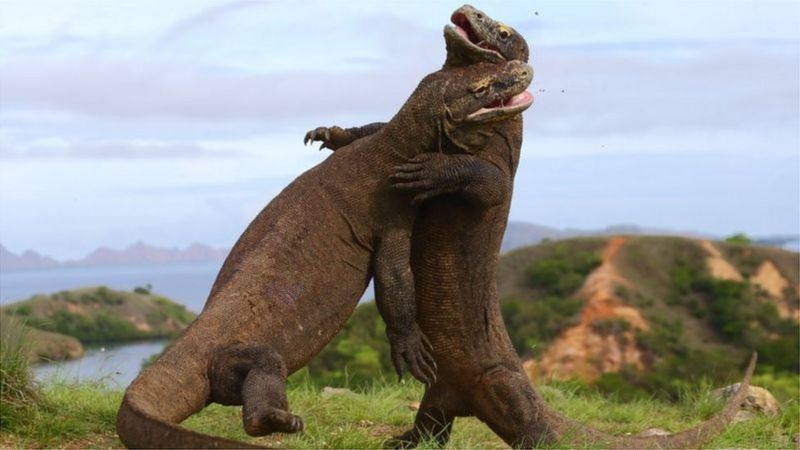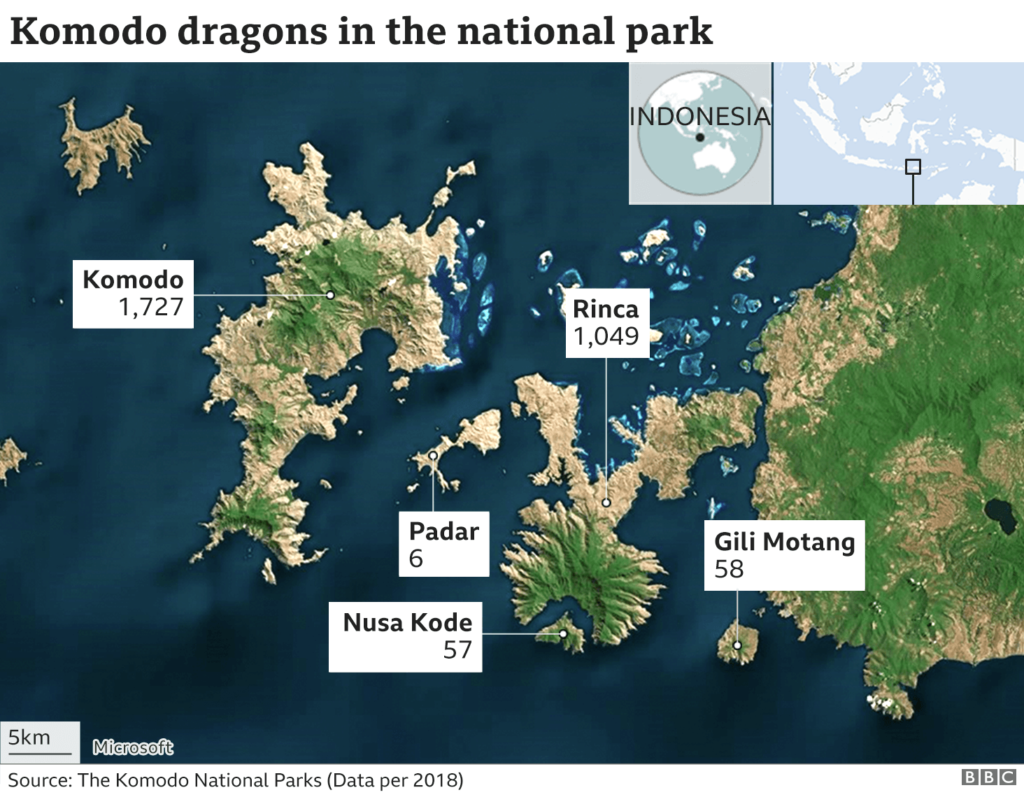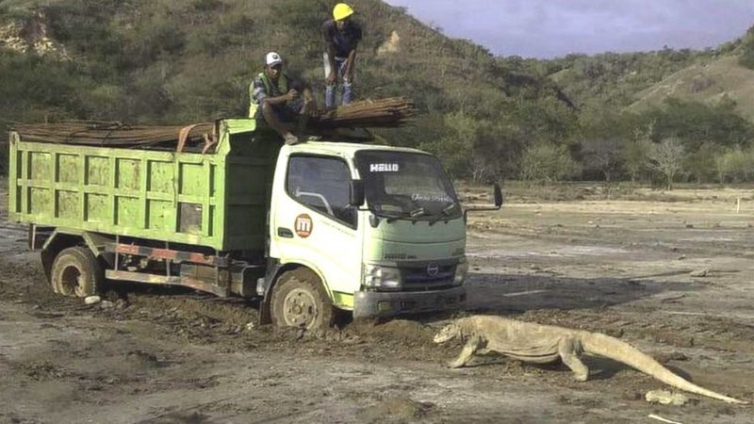A photo of a Komodo dragon facing a truck has raised concerns about a "Jurassic Park" attraction being built on an Indonesian island.
The multi-million dollar site is part of the government's plans to overhaul tourism in Komodo National Park.
The viral image has sparked questions about the conservational impact on the famed dragons, the world's largest lizards.
Officials said no dragons had been harmed and their safety was paramount.
Komodo dragons are only found in the wild on a handful of Indonesian islands where they are estimated to have roamed for millions of years.
They draw visitors from around the world and in recent years authorities have grappled with how to manage conservation and tourism in the national park.
Last year a controversial decision to close Komodo island - home to most of the lizards - and expel the 2,000 inhabitants who have lived alongside the reptiles for generations was dropped.
Instead authorities said they would introduce a $1,000 membership scheme to move away from mass tourism and protect the dragons and their habitat.

But around the same time they also unveiled plans for a mass tourist development on neighbouring Rinca island, which is home to the second-largest population of Komodo dragons.
The project has been dubbed "Jurassic Park" in Indonesia after the architects shared a video last month of their proposal - set against the music from the dinosaur film franchise. The video since appears to have been removed.
What are people saying about the photo?
Over the weekend an image of a Komodo dragon facing a construction truck on Rinca island was widely circulated on social media.
It was shared by Save Komodo Now, a collective of activists, who wrote: "This is the first time Komodos are hearing the roar of engines and the smell of smoke. What will the future impact of these projects be? Does anyone still care about conservation?"

Greg Afioma, a member of the coalition, told the BBC the group is concerned the planned development will negatively impact the reptiles and the residents.
"This kind of massive development disturbs the interaction of the animals. It will change their habitat," he said.
Government officials told the BBC they had reviewed the photo being shared on social media and could confirm no Komodo dragons had been harmed during the construction work.
"No Komodo dragons will become victims," Wiratno, Director-General of Nature Conservation and Ecosystems at the Indonesian Ministry of Environment and Forestry, told the BBC.
He added that a team from his ministry would go to the island to ensure safety protocols were being followed to protect the dragons.
Indonesia currently has a Komodo population of about 3,000, according to government data.
The dragons can grow up to 3m (10ft) long, have razor-sharp teeth and a poisonous bite.
Most of them - around 1,700 - live on Komodo Island, and around 1,000 more live on Rinca. The national park as a whole is a Unesco World Heritage site.
Latest Stories
-
CLOGSAG vows to resist partisan appointments in Civil, Local Government Service
59 minutes -
Peasant Farmers Association welcomes Mahama’s move to rename Agric Ministry
1 hour -
NDC grateful to chiefs, people of Bono Region -Asiedu Nketia
1 hour -
Ban on smoking in public: FDA engages food service establishments on compliance
1 hour -
Mahama’s administration to consider opening Ghana’s Mission in Budapest
1 hour -
GEPA commits to building robust systems that empower MSMEs
1 hour -
Twifo Atti-Morkwa poultry farmers in distress due to high cost of feed
1 hour -
Central Region PURC assures residents of constant water, power supply during yuletide
1 hour -
Election victory not licence to misbehave – Police to youth
1 hour -
GPL 2024/2025: Nations thrash struggling Legon Cities
1 hour -
Electoral offences have no expiry date, accountability is inevitable – Fifi Kwetey
1 hour -
Ghanaians to enjoy reliable electricity this Christmas – ECG promises
1 hour -
Police deny reports of election-related violence in Nsawam Adoagyiri
1 hour -
‘We’re not brothers; we’ll show you where power lies’ – Dafeamekpor to Afenyo-Markin
1 hour -
EPA says lead-based paints are dangerous to health, calls for safer alternatives
3 hours

